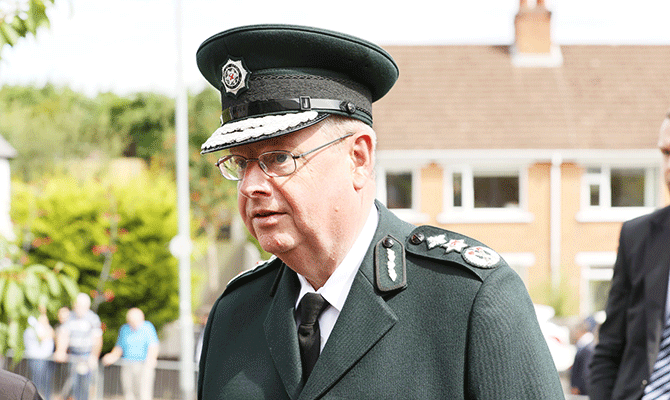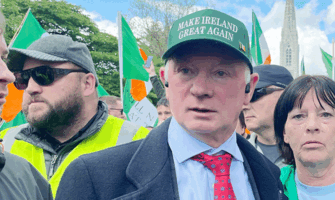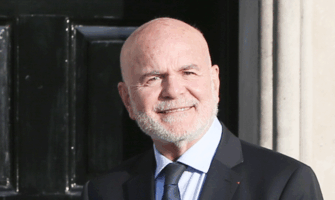
Simon Byrne
The PSNI is in crisis. That’s not only because of the decision of chief constable Simon Byrne to resign on Monday. Morale is in pieces after the huge data breach that saw the names, ranks and roles of all 10,000-odd officers and civilian staff published on the internet. Relations in the senior management team are poor. There is a funding crisis that prevents recruiting but recruiting is necessary because there aren’t enough Catholic police and retention is a problem. Above all, there is a governance crisis because of the circumstances that ultimately provoked the chief constable’s resignation.
The immediate cause is a damning High Court decision. The court quashed disciplinary action against two constables in 2021 – action the court found unlawful because it was taken for fear that Sinn Féin might withdraw support for policing, not because of the actions of the constables. Gerry Kelly, SF’s lead on the Policing Board, chairs a sub-committee of the board on police performance. He did ring the deputy chief constable to protest at police arresting and handcuffing a survivor of the 1992 UDA shootings at a bookies shop as he went to lay flowers during a commemoration. Police said it contravened Covid rules.
However, Kelly did not threaten to walk away from policing – unthinkable given SF’s current political stance and Michelle O’Neill as first minister designate. However, after a conversation with the deputy chief constable about Kelly’s phone call, Simon Byrne, displaying his ignorance of the north’s politics, unaccountably inferred SF might walk. He decided to suspend the two police involved.
The DUP was outraged at the High Court revelations that SF rang the police to interfere with operations. Not that anyone in the DUP would ever do that eh? The DUP members of the Policing Board tabled a motion of no confidence and the UUP predictably rowed in behind the DUP.
Byrne’s departure is a victory for the five unionist members of the board. SF, Alliance and the SDLP also have five and there are nine independent members appointed by the Northern Ireland Office.
Unionist members will be anxious to ensure that whoever is appointed as the new chief constable is not regarded as unduly sympathetic to SF. Deputy chief constable Mark Hamilton is likely to be ruled out since UUP leader Doug Beattie has already expressed no confidence in him, while other unionists have called for his resignation.
Given, however, that the north is in limbo without a justice minister, the northern secretary will probably have to take power to appoint a successor. There is unlikely to be a rush of applicants. The £230,00 salary may not be enough compensation for the constant tug of war by the north’s parties.
Nevertheless, the departure of Simon Byrne will not solve the PSNI’s problems. After 22 years the number of Catholic officers is still only 32% and falling. That figure has stuck stubbornly since now-disgraced northern secretary Owen Paterson binned 50:50 recruiting at the behest of the DUP in 2011. There are even fewer Catholic civilian staff – 19%.
It’s a growing problem because in the 18-25 age group in the north, the optimum recruiting age, there is a substantial Catholic majority. Furthermore, after almost a generation of the PSNI, there are still fewer than a dozen Catholic superintendents and fewer than 20 among chief inspectors.
Much is made of the threat from dissident republicans but over 2,000 Catholics joined the PSNI when that was more dangerous than now and they didn’t leave despite colleagues being killed and injured.
The culture in the PSNI puts many northern nationalists off. Senior and middle management regard themselves as in a British police service. There is talk of ‘Home Office guidelines’ and secondment to English forces. There was supposed to be secondment from An Garda Síochána that didn’t materialise; it went in the other direction. There is still anti-Catholic/nationalist sentiment and slurs in the north’s police, and a reluctance to confront it.



















